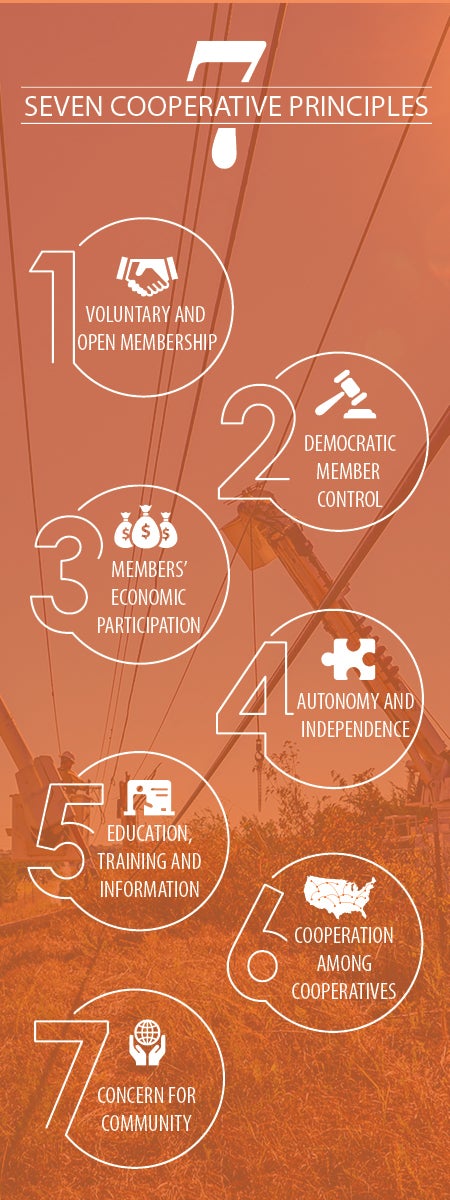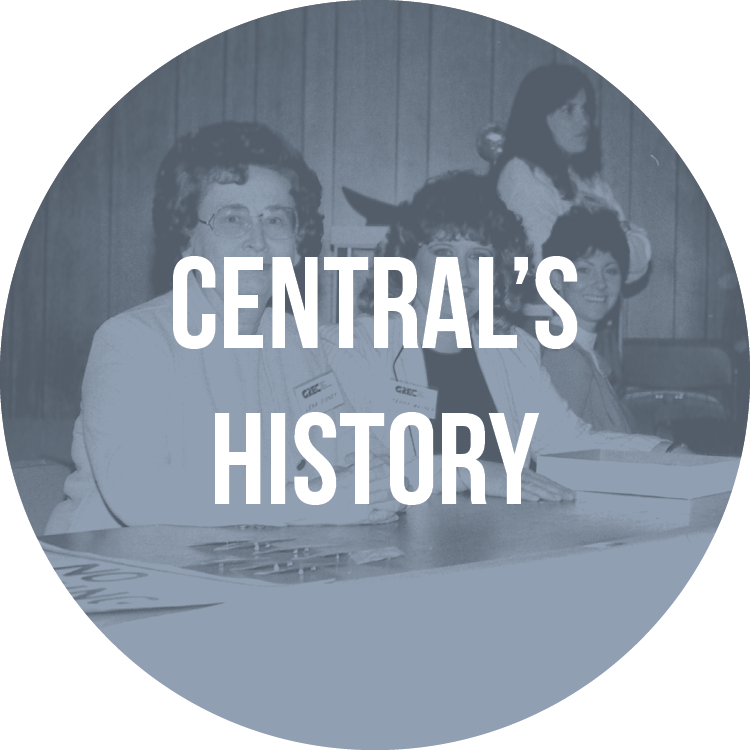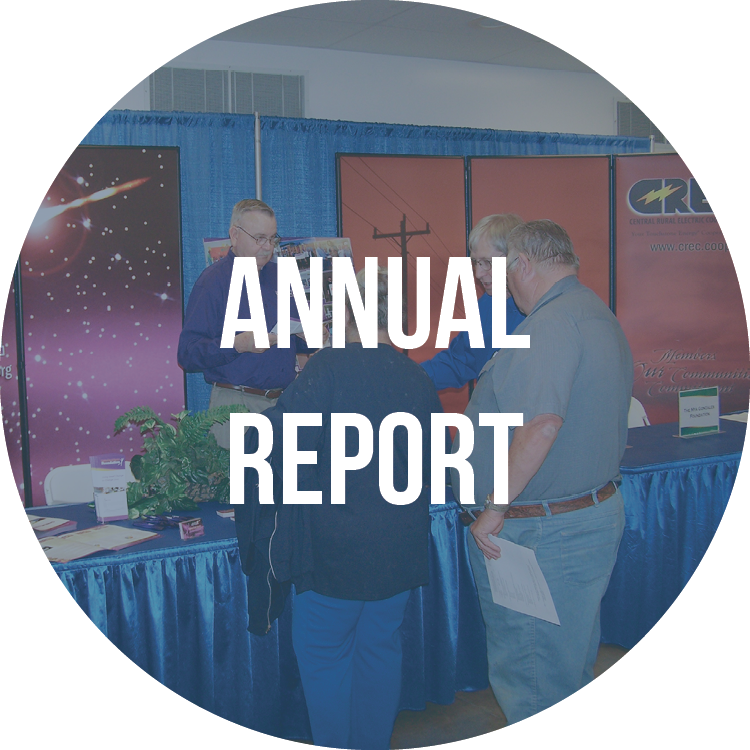Co-op Month
This October, Central is celebrating National Co-op Month along with cooperatives from across the nation! Learn more about your cooperative and how we differ from other business structures. This page will be updated throughout the month, so come back to learn more!
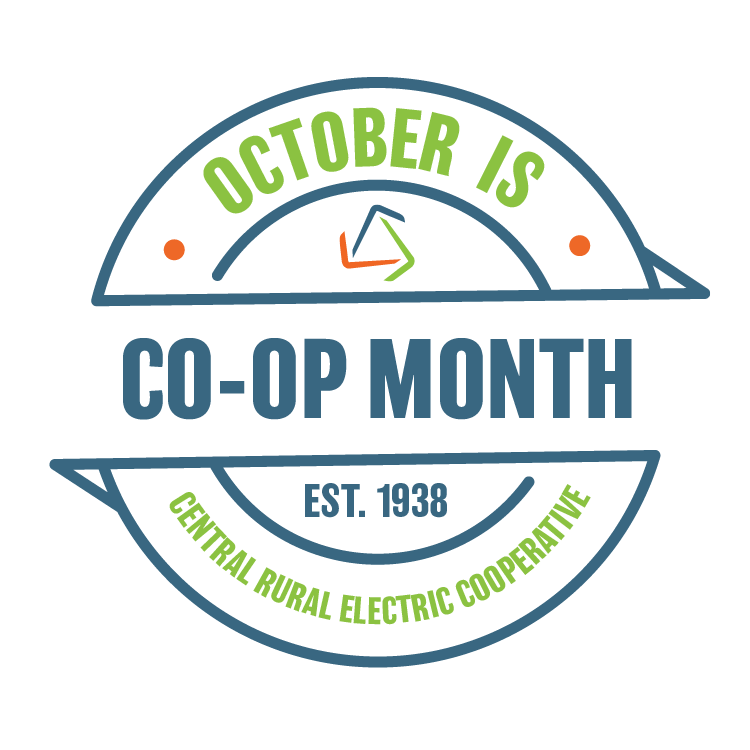
What is Co-op Month?
October is National Co-op Month! It's a time to celebrate the cooperative difference and recognize the impact cooperatives have in our communities. Electric cooperatives were built by the members we serve, bringing electricity to rural areas when no one else would. That same spirit continues today, as cooperatives work to provide safe, reliable and affordable electricity while investing in our local communities.
All month, Central will promote Co-op Month along with programs that have been created for members through email, on this webpage and on our social media accounts.
If you haven't already done so, follow Central on Facebook and Instagram.
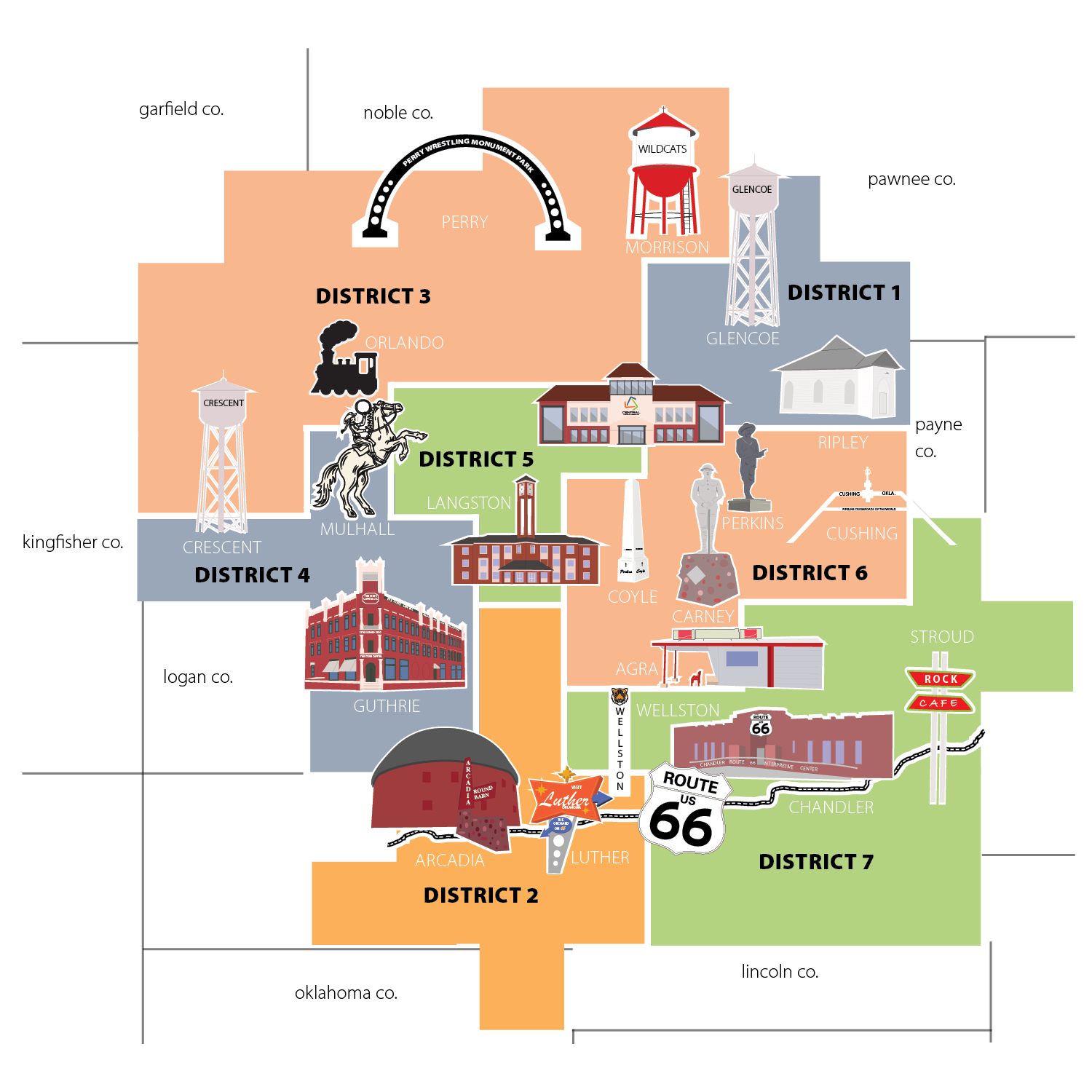
Central's History
Ninety years ago, life in rural America was dark. While cities and towns across the nation buzzed with electricity and the promise of new technology, only 10 percent of rural homes had access to electricity. The daily tasks of farm work, pumping water, preserving food and heating homes remained backbreaking work.
In 1938, two years after the REA was approved by Congress, a group of 10 local farmers banded together to create what is now Central Rural Electric Cooperative. With an $85,000 loan, local farmers and rural residents built 172 miles of line that initially served 141 farms.
Electricity brought immediate and profound changes to rural life. Families could pump water, refrigerate food and light their homes, and farmers could operate more efficient equipment.
That $85,000 investment, which would be $1.9 million today, represented more than just poles and wires. It represented hope, opportunity and a belief in a better future. The farmers and families who founded Central weren’t just installing electricity; they were building a stronger, more connected community.
Today, electric cooperatives serve more than 42 million Americans and cover more than half the landmass of the United States.
The same spirit that built those first 172 miles of line still drives our cooperative today. What began with 10 local farmers has developed into more than a power provider; it’s become a legacy. Through years of hard work and dedication, Central has become more than 18,000 members strong. The spirit of neighbors helping neighbors still fuels everything Central does today. Local neighbors working together, ensuring that every home, no matter how rural, has access to safe, affordable and reliable electricity.

What Makes a Membership in a Cooperative Unique
Electric cooperatives are unique because they offer ownership, voice and benefit, something not found in traditional businesses. Here's what sets cooperatives apart:
- Membership Ownership
Members aren't just customers, they're owners in the cooperative. Each member has an equal share in the cooperative.
- The Seven Cooperative Principles.
Cooperatives around the world operate according to the same set of core principles and values. These principles are a key reason that electric cooperatives operate differently from other electric utilities, putting the needs of their members first.
- Democratic Control
Every member can vote and has a right to participate in the policy-making process, including electing trustees from the membership. Annual and district meetings allow members to shape policies and influence the cooperative business. In commercial utilities, only stockholders and investors have a say in the policies and business of the company.
- Cooperative Connections.
When a large storm affects a cooperative, mutual aid from other cooperatives can make a big impact on restoring service safely and quickly.
- Community Focus
Because members are often local, cooperatives are deeply rooted in and responsive to their communities' needs. This helps co-ops support local growth, education and development. Central has a community foundation that provides grants to local nonprofits, organizations and individuals. Learn more about it here.
- Capital Credits.
Members share in the cooperative's financial success. If the co-op earns more money than it needs to cover expenses, the excess is returned to members in the form of capital credits.
- Advocacy and Engagement.
Members are encouraged to attend meetings, where they can engage in discussion, provide input, raise concerns and suggest improvements.
